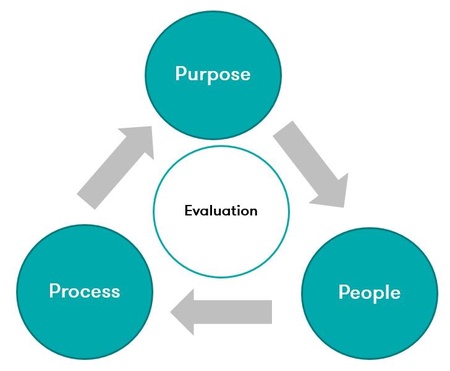Being an Engaged Research is exciting: it is about communicating research with the public in a fun and creative way. This process can improve research by making it more relevant and useful. We, as researchers, have a duty to disseminate the benefits and knowledge from higher education because we are publicly funded. I have participated in several engagement activities over the past couple of years which made my enthusiasm grow, disseminating the Health Services Research Unit work in clinical trials, evidence synthesis and promoting critical thinking skills. This exciting engagement work culminated with winning the Principal’s Prize for Public Engagement with Research in the Early Career Researcher category last year.
To further develop my skills, I was delighted to have been awarded a position at the Engaged Researcher’s Academy 2018/19 professional programme, delivered by the National Coordinating Centre for Public Engagement. I was also really proud to be representing applied health scientists, along with our colleague Patricia Norwood, researcher at the Health Economics Research Unit. The programme included 3 sessions each lasting 2 days with workshops covering topics such as leadership skills, media engagement, community engagement, performance and public engagement evaluation.
The programme is "a year-long professional development programme for researchers with a passion for public engagement. The programme creates a challenging but supportive environment for delegates to reflect upon what it means to be an engaged researcher, and to explore the quality and value of engagement. It aims to equip participants with understanding, skills and practical experience to enhance the impact of their engagement and to become leaders in engaged research".
I thoroughly enjoyed meeting other researchers with a passion for public engagement and discussing possible synergies between a range of fields, such as art design, history, literature, science and economics. I noticed how there are similar aspirations regarding achieving meaningful and impactful engagement with patients and the public and the strong belief across disciplines of public engagement’s added value; but similarly there are shared concerns: that public engagement is often delegated to junior colleagues as a CV-enhancing activity and is viewed as a soft skill and not a serious enterprise; or that early career researchers struggle with finding time to do it, along with other competing academic activities.
Here are a few highlights from the training course:
- Learning about the Quality engagement framework: we learnt about NCCPEs quality framework focusing on: purpose (of engagement); (understating your target) people; the process (of engaging); evaluation (continuum). It is important to reflect on why we want to engage and who are the agents involved in the process (not only the public or patients, but also the researchers and community partners that help deliver activities). Once these aspects are clear, finding the most appropriate process to deliver our message and evaluate it from the beginning are key elements of success.
- “Academics: don't give a lecture, tell a story”: we had a few sessions on making our research more appealing to different audiences. This was in fact one of the most important messages to me. It is challenging to give up the lecture mindset and to create stories around our work, when we are trained to focus on precision and accuracy. It was great fun to get our creative hats on and start developing innovative ways to communicate our messages.
- Thinking outside the box: As a science focused researcher, I rarely have the opportunity to collaborate with arts and humanity fields. We had sessions focused on community engagement and using art to involve the public with research. This was an exciting part of the Academy that helped me develop new research and engagement ideas.
- A focus on evaluation: evaluating engagement is still one of the main challenges of conducting public engagement. In the Academy, we spent a couple of sessions discussing the best way to evaluate our own projects. Key takeaway messages include: always consider the aim of your activity first (what are you trying to achieve?); evaluate throughout the process and not just at the end (this will allow constant opportunities for improvement); consider appropriate and creative ways to evaluate your engagement.
Applications are now closed for the Engaged Researcher’s Academy in 2019/20, but the scheme runs every year so I would encourage you to have a look and see if you are interested in applying. As for me, I am excited to apply the knowledge from the Academy and improve my public engagement activities making them more meaningful to me, as a researcher and person, and to the public I interact with.
Beatriz Goulao, Research Fellow, Health Services Research Unit


